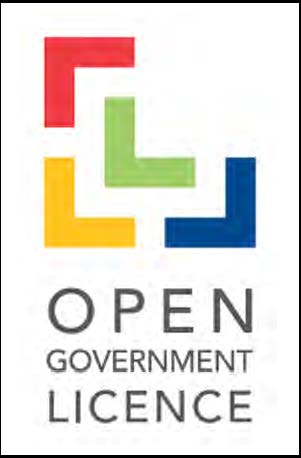
În 1992, Comisia Economică ONU pentru Europa a adoptat Principiile Fundamentale ale Statisticii Oficiale (#FPOS30). Doi ani mai târziu, in 1994, principiile au fost agreate la nivel global, aprobate fiind de Comisia de Statistică / ONU. Consiliul Economic și Social ONU le-a avizat favorabil în 2013. Cea mai înaltă recunoaștere la nivel politic a avut loc în 2014 când principiile au fost adoptate de Adunarea Generală ONU. O echipă de vizionari, printre care și colegul nostru Ilie Dumitrescu, au gândit și pus pe hârtie cele 10 principii.
Cu prilejul celebrării a 30 de ani de la adoptare, am surprins gândurile domnului Ilie Dumitrescu, director de cabinet al președintelui INS și co-fondator al Principiilor Fundamentale ale Statisticilor Oficiale (#FPOS30), sub forma unui interviu ce va fi postat în 3 părți, și anume în 10, 14 și 17 iunie. Astăzi vom publica prima parte a interviului.
Domnule Dumitrescu,
Din câte am aflat, dumneavoastră sunteți unul dintre reprezentanții statisticii românești care a participat de-a lungul timpului, o perioadă indelungată, la activitatea Conferinței Statisticienilor Europeni, acoperind atât perioada dinaintea anilor 1990, cât și dupa ’90. Caracteristicile fiecareia dintre cele două perioade, dincolo de considerentele politice, constau, sub aspect statistic, în faptul că, în prima parte, în cadrul dezbaterilor de la Conferință, se confruntau două abordari aproape complet diferite: una cea aparținând delegațiilor din țările ce promovau sistemul economiei planificate centralizat, din care făceam parte și noi, și cealalta a țărilor occidentale, cu economie de piață.
Prima abordare era dominată de expunerea și promovarea concepției statistice, metodelor și tehnicilor subordonate Sistemului Productiei Materiale, iar în cea de-a doua, statistica oficială publică, organizată și funcționând în baza unor valori democratice, caracteristice econnomiei de piață, destinată tuturor categoriilor de utilizatori de date statistice.
Întrebarea pe care v-o adresăm este: în ce mod, după părerea dumneavoastră, puteau funcționa într-un cadru comun, cele două sisteme, partajate conceptual de interese particulare, daca nu chiar divergente?
Răspuns: Materialele supuse dezbaterilor în cadrul sesiunilor anuale ale Conferinței și în grupele de lucru erau astfel întocmite și organizate încat să evite nuanțările politice sau provocările controversate pe probleme de principii, fiecare parte fiind lăsată să-și expună punctele de vedere în concordanță cu propriile considerente și opțiuni.
Elementele comune care suscitau totuși un interes general erau aproape în exclusivitate consacrate abordărilor de natură tehnică statistică, metodelor statistice, definițiilor de bază ale indicatorilor, clasificărilor, etc. Domeniul cu cea mai mare disparitate, dacă este să ne referim la etapele procesului statistic, era cel al diseminării rezultatelor muncii statisticienilor din sfera statisticii oficiale. În timp ce, în genere, discuțiile provenind din partea fostelor țari cu economie planificata, cum se numeau ele, își manifestau optiunea potrivit căreia statistica trebuie să servească aproape exclusiv interesului și scopului organelor guvernamentale (vorbesc, în special, în numele delegației românești), cele promovate de delegațiile țărilor occidentale insistau asupra necesitații ca statistica să servească întreaga societate, respectiv toate categoriile de utilizatori de date statistice, și chiar să fie generată de opiniile acestora.
Rezultatele finale ale fiecarei sesiuni, grupe de lucru, etc, consemnate în rapoartele asupra dezbaterilor reflectau, în general, punctele comune ale tuturor participanților și, distinct, fără o caracterizare critică sau apreciativă, ale fiecărei dintre cele doua viziuni asupra sistemului statistic. Era așadar o înțelegere firească a partajării opiniilor în funcție de comandamentele de natura politicii economice atribuită fiecarei concepții.
Ceea ce este însă de subliniat că dominantă este relația de cooperare și conlucrare având sub aspect etic caracteristicile de ințelegere și respect reciproc.
The National Institute of Statistics shares the thoughts about the valuable history of Fundamental Principles (elaboration and adoption) as an exciting “story” of a live witness over two political systems. The interview with Mr. Ilie Dumitrescu, director of the NIS President Cabinet, one of the founders of FPOS, we intend to split it into 3 parts, that are to be posted on 9th, 14th and 17th of June.
For today, we are coming with the first part of the interview.
Mr. Dumitrescu,
As far as we know, you are one of the Romanian statistics representative who have a long history of participating in the proceedings of the Conference of European Statisticians, covering both the period before the 1990s and the one subsequent to the 1990s. The characteristics of each of the two periods, beyond the political considerations, from the statistical point of view, consist of the fact that before the 1990s, in the Conference debates, two almost completely different approaches were obvious: one belonged to the delegations of the countries that promoted the centrally planned economic system, where we were also included, and the other was that of the market economy of the Western countries.
The first approach was dominated by the presentation and promotion of statistical concepts, methods and techniques that were subordinate to the Material Production System, whereas, for the second one, the focus was on official statistics that is public, that is organised and operates based on the democratic values (which are characteristic to the market economy) and that is oriented towards all the categories of statistical data users.
The question we are asking you is the following: in your opinion, considering that the two systems were conceptually separated by particular if not divergent interests, how could they function in a common framework?
Answer: The documents that were subject to debates in the annual sessions of the Conference of European Statisticians and in the working groups were designed and drawn up so as to avoid going into political details or taking controversial stands on principle-related issues, each side being allowed to express its points of view in accordance with its own considerations and options.
The common elements that, nevertheless, aroused general interest, consisted almost exclusively of technical statistical approaches, statistical methods, the basic definitions of indicators, classifications etc. The field with the highest amount of discrepancies, if we talking about at the phases of the statistical process, was that concerning the dissemination of the results of the work done by statisticians in the framework of official statistics. While, in general, the debates promoted by the former planned-economy countries, as they used to be called, expressed the view that statistics should almost exclusively serve the interests and purposes of governmental bodies (I am particularly speaking on behalf of the Romanian delegation), the ones promoted by the delegations of the Western countries insisted on the need for statistics to serve the entire society, namely all the categories of statistical data users, and even to be generated by their needs.
The final results of each session, working group etc., which were recorded in the reports on the debates, generally reflected the points all participants’ positions had in common and, separately, without making neither critical nor appreciative remarks, each of the two point of views of the statistical systems. Therefore, it was naturally understood that opinions differed depending on the economic policy constraints these views were based on.
Worthy of mention is, however, the fact that the co-operation relation (whose ethical component was characterised by understanding and mutual respect) prevailed.
 Institutul Național de Statistică
Institutul Național de Statistică 










